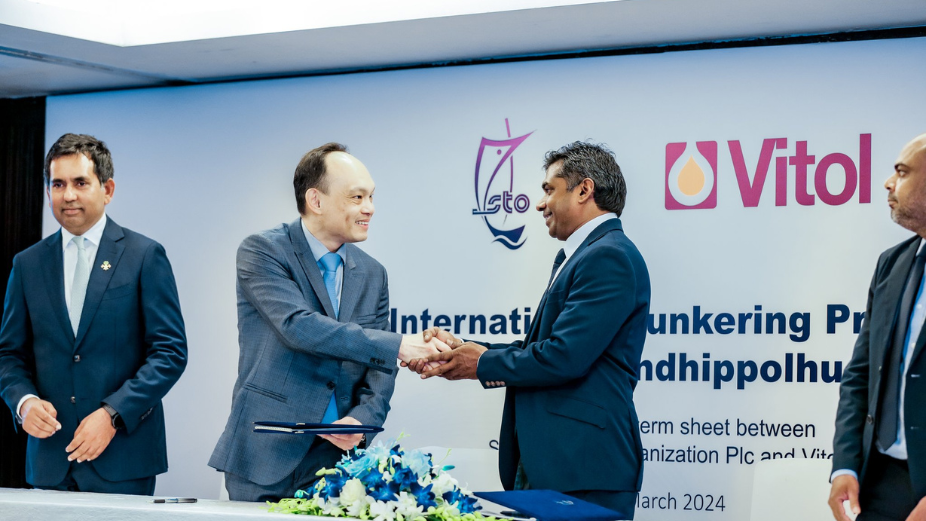
Leveraging its prime position amidst bustling Indian Ocean shipping lanes, the Maldives is poised to become a vital refuelling point for international vessels. The State Trading Organization (STO), in partnership with energy giant Vitol, is spearheading the development of an international bunkering hub in Ihavandhippolhu, the country’s northernmost atoll.
Bunkering, the process of supplying fuel to ships, holds significant potential for the Maldives. Strategically positioned along major shipping routes, the country stands to capitalize on a steady flow of vessels passing through the Indian Ocean.
The project is seen as a key step toward diversifying the Maldivian economy, which has traditionally relied heavily on tourism. “This is an imperative step in boosting the country’s revenue besides tourism,” remarked Economic Minister Mohamed Saeed.
STO’s CEO and Managing Director, Shimadh Ibrahim, sees the benefits cascading throughout the economy. “Ongoing bunkering projects will significantly increase the government’s tax revenue, benefiting stakeholders across the board,” he said. Increased profits, bolstered foreign reserves, and expanded job opportunities are among the anticipated advantages.
The partnership with Vitol, a global heavyweight in the energy sector, brings significant expertise and resources to the table. Vitol’s Director, Jay Ng, underscored the company’s role in supplying approximately 6% of the worldwide bunkering market. Vitol will ensure a steady flow of fuels, including traditional heavy fuels, marine gas oil, and also has plans to supply LNG and biofuel in response to future demand.
The potential impact is considerable. Ihavandhippolhu’s strategic location near busy shipping lanes, with over 300 ships passing daily, positions the Maldives to become a major refuelling hub. This would provide vital services to a market that has been underserved in the region for a long time.
This isn’t the Maldives’ first foray into bunkering. In 2023, an agreement with Qatar-based UrbaCon Trading and Contracting (UCC) was signed but eventually expired. STO’s pivot to Vitol signals a determination to make this key economic initiative a success.
The Maldivian government, eager to lessen its reliance on tourism, has granted STO exclusive rights to operate bunkering in the Haa Alif Atoll. This bold move suggests a strong commitment to the project’s potential to transform the country’s economic landscape.
Challenges and Opportunities
While the potential rewards are significant, so too are the potential challenges. The Maldives will need to compete with established bunkering hubs in the region. Additionally, concerns about the environmental impact of increased ship traffic and bunkering operations will inevitably arise in this ecologically sensitive nation.
The success of the Maldives’ ambitious bunkering project remains to be seen. However, the partnership with Vitol and the government’s determination suggest they are serious about seizing this opportunity to drive economic growth and diversification.












